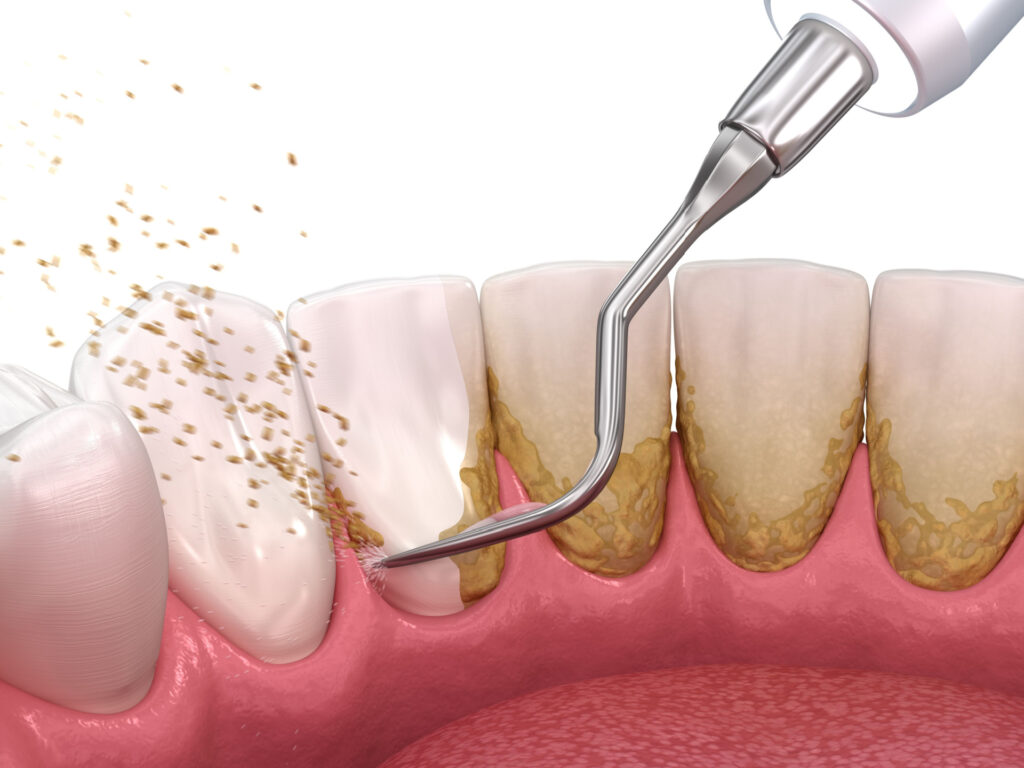To many, a routine dental check-up at Dental Care 4 U in South Holland, IL, is a basic cleaning and a quick examination. However, the doctor might occasionally recommend a deeper cleaning known as “Scaling and Root Planing.” This procedure, often associated with general dentistry, is essential in combating gum diseases and ensuring optimal dental health.
Identifying the Symptoms
Understanding the signs that may necessitate a scaling and root planing procedure is crucial. Here are the symptoms to watch out for:
- Bleeding gums: Especially when brushing or flossing.
- Swollen or tender gums: This can indicate inflammation.
- Persistent bad breath: Even after proper oral hygiene practices.
- Receding gum line: Gums pulling away from the teeth.
- Loose teeth or change in bite: A sign of severe underlying issues.
Why is Scaling and Root Planing Needed?
- Combatting Early Stages of Gum Disease: The initial stage of gum disease, known as gingivitis, is often marked by red, swollen gums that bleed easily. If left untreated, gingivitis can evolve into a more severe condition called periodontitis. Scaling and root planing acts as a proactive approach, addressing these issues before they worsen.
- Eliminating Bacteria and Plaque: The mouth is home to countless bacteria. Over time, these bacteria combine with food particles and mucus, forming a sticky substance known as plaque. When plaque hardens, it turns into tartar, which can’t be removed by regular brushing or flossing. This treatment effectively eliminates hardened tartar, ensuring a healthier oral environment.
- Preventing Tooth Loss: Periodontitis, the advanced stage of gum disease, can lead to pockets between the gums and teeth. As these pockets deepen, they harbor more bacteria, causing further bone and tissue loss. Tooth loss is a significant risk without a timely intervention like scaling and root planing.
Treatment Process

- Examination: The doctor first examines the depth of the gum pockets using a specialized instrument. X-rays might be taken to assess bone loss or other potential issues.
- Scaling: Using specialized dental tools, the doctor will meticulously remove tartar and plaque from the tooth surface and beneath the gum line. Ultrasonic instruments may also be used to break up larger pieces of tartar.
- Root Planing: The roots of the teeth are then smoothed out. This process helps gums reattach to the tooth, minimizing pocket depth.
- Post-Procedure Care: The doctor may prescribe an antimicrobial mouthwash to keep bacteria at bay. Pain or sensitivity might be experienced, but it’s temporary.
Adopting Preventive Measures
- Regular Dental Check-ups: Regular Dental Care 4 U visits allow the doctor to detect early signs of gum disease or other dental issues.
- Proper Brushing and Flossing: Daily brushing and flossing are crucial. It’s not just about frequency but technique. Ensuring you’re reaching all areas and cleaning effectively can dramatically reduce the risk of gum disease.
- Using the Right Products: An antimicrobial toothpaste or a therapeutic mouthwash can help reduce bacteria in the mouth. Ask the doctor at Dental Care 4 U for product recommendations.
- Avoiding Smoking and Tobacco: Tobacco use significantly increases the risk of gum disease. By quitting or avoiding tobacco products, you can enhance your oral health.
After Scaling and Root Planing
Scaling and root planing often paves the way for a transformative change in one’s oral health. Post this therapeutic procedure. It’s common for patients to experience a noticeable rejuvenation: gums appear healthier, exhibiting less redness and swelling, while the unnerving experience of bleeding during brushing diminishes. Yet, the journey doesn’t end here. Embracing diligent oral hygiene practices is paramount to uphold these improvements and fend off potential dental concerns. Coupled with consistent check-ups, this commitment serves as the cornerstone for a lasting and radiant oral well-being.
Frequently Asked Questions
Q: What is Scaling and Root Planing?
A: Scaling and Root Planing is a deep-cleaning dental procedure to treat and prevent gum diseases. At Dental Care 4 U, our doctors carefully remove plaque and tartar buildup from below the gum line, ensuring healthier gums and teeth.
Q: How often is Scaling and Root Planing needed?
A: The need for this procedure depends on the individual’s dental health. Some might require it more frequently due to severe gum disease symptoms, while others with better oral hygiene might not need it as often. It’s best to consult with the Dental Care 4 U team in South Holland, IL for personalized advice.
Q: Are there any side effects post-treatment?
A: Post-scaling and root planing, patients might experience temporary sensitivity or slight discomfort. However, these symptoms are short-lived and are a sign that your gums are healing. Our team at Dental Care 4 U will guide post-procedure care to ensure a smooth recovery.
The Journey Ahead
Your dental health is more than just a priority at Dental Care 4 U in South Holland, IL; it’s our passion. We are devoted to lending a listening ear to your concerns, ensuring we create a tailored approach that addresses your unique needs. With a blend of advanced techniques and compassionate care, we are steadfast in our mission to guide you towards unparalleled dental well-being.
Venturing into a future with radiant smiles and robust oral health shouldn’t be a distant dream. It’s an attainable reality, and our dedicated team is eager to assist. Whether you’re navigating the symptoms discussed earlier or it’s time for your routine check-up, don’t hesitate. Dial (708) 333-2213 or schedule a consultation and embark on a transformative journey for your oral health with us.
